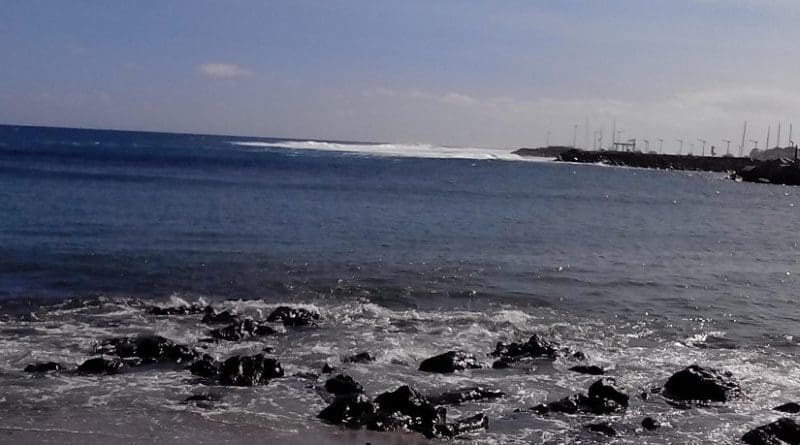IORA Takes Shape With India Stressing Security Collaboration – Analysis
By Nilova Roy Chaudhury*
India sent Vice President Hamid Ansari to Jakarta for the first ever summit meeting of the Indian Ocean Rim Association (IORA), a 21-nation group of coastal countries flanking the Indian Ocean.
Preoccupation with domestic politics kept Prime Minister Narendra Modi away from the two-day summit, marked by the attendance of 16 heads of state or government of the 21 countries. Among those who attended were South African President Jacob Zuma, Sri Lankan President Maithripala Sirisena, Bangladesh Prime Minister Sheikh Hasina, Malaysian PM Najib Razak and Australian PM Malcolm Turnbull.
The organisation, founded in 1997, in Mauritius, as the Indian Ocean Rim Initiative, morphed into the Indian Ocean Rim Association for Regional Cooperation (IOR-ARC) before becoming the IORA, and floundered until quite recently before arriving at a set of goals with which all members can identify.
India has embraced the idea of a stronger, more focused IORA as one which could move the member countries away from China’s proposed ‘Maritime Silk Route’ initiative. A ministerial meeting held in New Delhi in 2011 set out some key markers, including security of maritime lanes, joint anti-piracy operations, disaster management, counter-terrorism cooperation and enhanced and unhindered trade flows.
Six concrete areas of focused cooperation were decided — maritime safety and security; trade and investment; management of fisheries; disaster management; science and technology; and tourism.
The 21 member-states are Australia, Bangladesh, Comoros, India, Indonesia, Iran, Kenya, Madagascar, Malaysia, Mauritius, Mozambique, Oman, Seychelles, Singapore, Somalia, South Africa, Sri Lanka, Tanzania, Thailand, the UAE and Yemen.
President Joko “Jokowi” Widodo co-chaired the summit with the prior chair the Australian PM — and South Africa’s President, who is set to assume the chair later this year.
The formal structure of the Association so far has been the holding of official and ministerial meetings. This first summit of leaders, held largely at the initiative of President Widodo, was preceded by meetings of senior officials and ministers.
India is keen to ensure that China, with its rapidly expanding Navy, does not disrupt the tranquillity of the channels of navigation in the Indian Ocean — which has remained largely peaceful so far. Adherence to the United Nations Conference on the Law of the Sea (UNCLOS) is a major binding factor of the member states.
“We have an imperative need for open trade and open sea lanes that carry it. I call upon the IORA member states to ensure that the freedom of navigation and over-flight in the Indian Ocean is respected by all, as an expression of our commitment to UNCLOS,” Ansari said.
China, one of seven dialogue partners of the IORA (along with Britain, France, Germany, Japan, the United States and Egypt), has displayed considerable aggression in the South China Sea and refused to accept a tribunal verdict, creating considerable disquiet.
Maritime safety and security will be IORA’s main thrust area. Joint action has seen improved security in the region around Somalia and the Gulf of Aden, which was earlier infested with pirates. The western part of the Indian Ocean littoral also faces a severe threat from terrorists.
The summit saw three critical documents signed — the IORA Concord, a ministerial Plan of Action for the next four years and a declaration to prevent and counter terrorism.
The Blue Economy is increasingly a global focus area. The Indian Ocean is at the crossroads of global trade. The Ocean and its littorals are rich in natural resources and home to more than 2.3 billion people. The Ocean is critical to India’s energy security, with over 80 per cent of its energy imports coming via this maritime route.
Maritime safety and security can be reinforced by institutionalising cooperative mechanisms like White Shipping Agreements and by setting up an Information Fusion Centre to strengthen Maritime Domain Awareness (MDA), which India is ready to host, Ansari said.
Around 500 people, including a group of business people from India, under the aegis of FICCI, participated in a Business Forum held on the sidelines of the Summit.
India plans to set up the “IORA Centre of Excellence (ICE)” in one of its coastal cities to provide academics and researchers access to a collective source of data and resource material.
*The author is a veteran journalist and writer on strategic affairs. Comments and suggestions on this article can be sent to [email protected]

